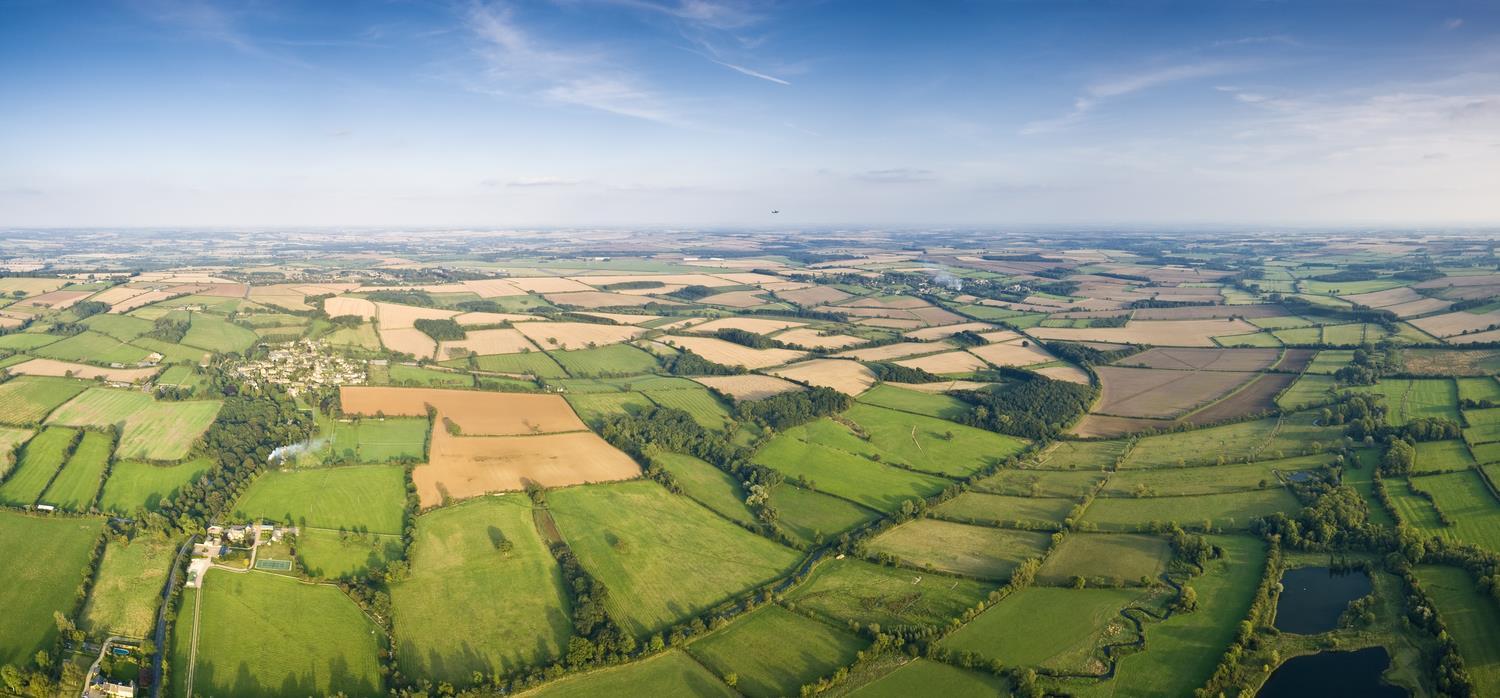

Introduction

DEFRA has recently published further details on Environmental Land Management (ELM). It includes for new SFI Standards, changes to the Countryside Stewardship (CS) scheme and details of a further round of the Landscape Recovery (LR) scheme.

The details were announced in a comprehensive ‘Policy Paper’

Environmental Land Management Update: how Government will pay for land-based environment and climate goods and services
This can be found at:

https://www.gov.uk/government/publications/environmental-land-management-update-how-government-willpay-for-land-based-environment-and-climate-goods-and-services/environmental-land-management-elmupdate-how-government-will-pay-for-land-based-environment-and-climate-goods-and-services
Sustainable Farming Incentive (SFI)
Six new Standards will be available under SFI this year. These will be in addition to the existing three made available in 2022. The new Standards are no longer structured by Levels (Introductory, Intermediate etc.) – by giving more flexibility to pick and choose.

Those already participating in SFI can add these Standards and more land (it is not yet clear whether this also applies to those in the SFI Pilot). No specific date has been given for when they will be available, but it is stated to be from ‘this summer’ The table on the next page includes a summary of the required actions and payment rates for each standard.

Payment Actions

Hedgerows
£3 per 100 metres - one side
Access and record hedgerow condition
£10 per 100 metres - one side Manage hedgerows so there is a range of different heights and widths.
£10 per 100 metres - both sides Maintain existing hedgerow trees, or establish new ones, so there’s an average of at least 1 hedgerow tree per 100 metres.
Integrated Pest Management


£989 per year
£673 per hectare
Complete an integrated pest management (IPM) assessment and produce an IPM plan.

Establish and maintain flower-rich grass margins, blocks, or in-field strips.
£55 per hectare Establish a companion crop.
£45 per hectare No use of insecticide.
Nutrient Management
£589 per year
Complete a nutrient management (NM) assessment.

£102 per hectare Establish and maintain legumes.
£593 per hectare
Arable and Horticultural Land
£614 per hectare
Establish and maintain legume fallow.
Establish and maintain blocks or strips of pollen and nectar flower mix.
£732 per hectare Establish and maintain blocks or strips of winter bird food.

£590 per hectare
£451 per hectare
Improved Grassland
£333 per hectare
Establish and maintain grassy field corners and blocks
Establish and maintain a 4 metre- 12 metre buffer strip on arable and horticultural land.
Take grassland field corners and blocks out of management.
£474 per hectare Maintain improved grassland to provide winter bird food.
£235 per hectare Establish and maintain a 4 metre- 12 metre buffer strip on grassland.
Low Input Grassland
£151 per hectare (indicative) Manage grassland with very low nutrient inputs (outside SDAs)
£98 per hectare (indicative) Manage grassland with very low nutrient inputs (SDAs)
The six new Standards will be offered alongside the two existing Soil Standards and the Moorland Standard already available. There does not appear to be any change to these Standards which look like they will continue with a ‘package’ of actions within different Levels (Introductory and Intermediate). The new SFI Management Payment of £20 per hectare per annum, payable on the first 50 hectares will be available to all new and existing agreements.
As SFI expands each year, DEFRA will be introducing more Standards and actions incrementally, with the full set planned to be in place by the start of 2025. This means that each year there will be more that can be chosen to do and get paid more as a result. It will be possible for farmers who already have an SFI agreement to:

• add more actions/Standards.
• increase levels within Standards already in the SFI Standards agreement.





• add more land.
The schemes are being designed so that they are accessible to Tenant farmers. This includes those on tenancies that are rolling-on from year-to-year if the Tenant expects to have ‘management control’ of it for the 3-year duration of their SFI Standards agreement.
Countryside Stewardship Plus (CS Plus)


An enhanced version of Countryside Stewardship will now form the second tier of ELM, replacing the previously planned Local Nature Recovery. It will reward farmers for working with their neighbours to support ‘climate and nature aims’ – i.e., reducing carbon emissions and increasing biodiversity. Under CS Plus, a further 30 actions will be available by the end of 2024 in addition to the 250 plus already available. The aim is to improve the existing actions where possible as the scheme evolves, by making them more ‘outcome focused’, less prescriptive and more flexible about how to achieve the intended outcomes. DEFRA has said there will be greater flexibility over when farmers can apply (could this mean all-year round) and how they manage their agreements. It has also said payments will be quarterly rather than annually – there is no indication if this will apply to existing agreements It is also replacing the current ‘burdensome’ annual revenue claim with an annual declaration, this will apply to all CS agreements.

CS Plus will be available from 2024, further details along with payment rates are expected to be published later this year. In the meantime, the next round of Countryside Stewardship Higher-Tier will open in February, with MidTier following in March for agreements starting on 1 January 2024.


As SFI and CS Plus evolve over the next two years, DEFRA aims to offer them in a single ‘integrated service’. Applicants will be able to select a combination of actions from both schemes.
The intention is for England Woodland Creation Offer (EWCO) to also be available via CS Plus once the scheme has been transitioned over. It appears there will be a lot more flexibility around the schemes allowing applicants to ‘mix and match’ between schemes and be flexible on adding land to an agreement. However, this aspiration will need to be matched by efficient systems to handle applications.

Landscape Recovery

This is the third element of ELM. It supports ‘ambitious’ large-scale nature recovery projects focusing net-zero, protected sites and habitat creation. A pilot opened last year and following high demand, DEFRA has confirmed a second round will open in the spring of 2023 and a further round in spring 2024. The second round will take up to 25 projects and will focus on net zero, protected sites and habitat creation. Further details are expected soon.

Conclusion

Although we are still awaiting some of the practical details, this announcement does provide more clarity on what and how much the ELM schemes are going to offer. By 2028 the BPS will have completely disappeared in England. We have known that future support will not be as ‘profitable’ as the BPS – something will have to be done to receive money under ELM. But this latest announcement should help with planning, and it will now be down to decide what will be the best way forward for each business. It does appear from this announcement, and those made earlier in the year on CS payment rates, that DEFRA are listening to the industry. It does have environmental targets to hit and, to this end, needs as many farmers as it can to sign up to these schemes. On the other hand, it also must provide value for money to the taxpayer.




We are a national team of proper ty professional, char tered surveyors, planners, agribusiness consultants, utility project managers and sustainable energy exper ts – all working for you.
Our agribusiness consulting and farm management team offer a high level of technical and practical experience, as well as strategic vision to develop oppor tunities and reach workable long term solutions for your farming business in a rapidly changing environment.
For fur ther information, please contact a member of our agribusiness team.
David Kinnersley
Head of Agribusiness
01905 459427
Charlotte Gore Partner
01858 411218
david.kinnersley@fishergerman.co.uk charlotte.gore@fishergerman.co.uk
Julie Wade
Senior Agribusiness Consultant
01636 642514
julie.wade@fishergerman.co.uk
Matthew Ayers Associate
01234 827113
matthew.ayers@fishergerman.co.uk
John Price Agribusiness Graduate

nick.wright@fishergerman.co.uk
01905 677350 john.price@fishergerman.co.uk
Robert Knight
Associate Partner
01858 411253 robert.knight@fishergerman.co.uk
Nick Wright Agribusiness Consultant
01858 411222
Tom Paybody Senior Agribusiness Consultant
01858 411225
tom.paybody@fishergerman.co.uk
Ian McKenzie

Associate Partner
01530 410824
ian.mckenzie@fishergerman.co.uk
Bradley Humber Agribusiness Consultant







01905 453275
bradley.humber@fishergerman.co.uk nick.wright@fishergerman.co.uk
Carrie Marshall Agribusiness Graduate


01636 556886
carrie.marshall@fishergerman.co.uk

Samantha Allen Agribusiness Graduate
01858 410200
samantha.allen@fishergerman.co.uk
In this first episode David is joined by Jake Freestone, Farm Manager at Overbury Enterprises. He is a 2013 Nuffield scholar,
'Fisher German Talks' Podcast popular YouTuber and Farmer’ s Weekly Environmental Champion and Arable Innovator at the British Farming Awards 2021.

David and Jake discuss the future of British farming and the challenges created by climate change. With discussions around growing climate pressures, regenerative agriculture and the risks and challenges faced by British farmers, this is a really interesting listen for all and a great way to launch our podcast series.
You can tune in to our podcast series on Spotify, Apple Podcasts, Google Podcasts, as well as other available podcast platforms. Just search ‘Fisher German Talks’.

